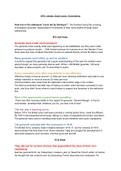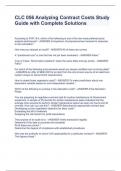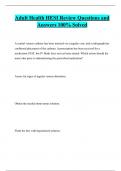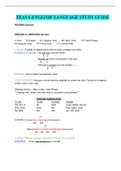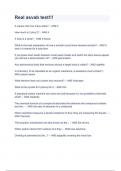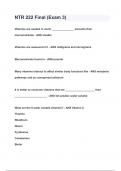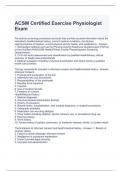Other
Depth Study / Military Leadership notes - OCR Changing Nature of Warfare
- Course
- Institution
Explores the First World War debate - how true is the statement 'lions led by donkeys?' Provides detailed notes in arguing for and against, as well as focusing on the leadership of Haig.
[Show more]
